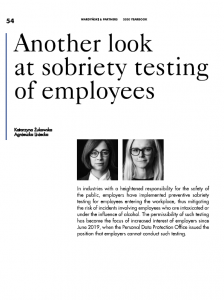Crossing the border and reuniting families (Guide for citizens of Ukraine)
Another concise guide: How long does legal residence last in Poland? How to extend it? How to bring family members to Poland? In Ukrainian, Polish and English.
The guide has been prepared by Magdalena Świtajska and Katarzyna Sawicka from the firm’s Employment and Global Mobility practice.



